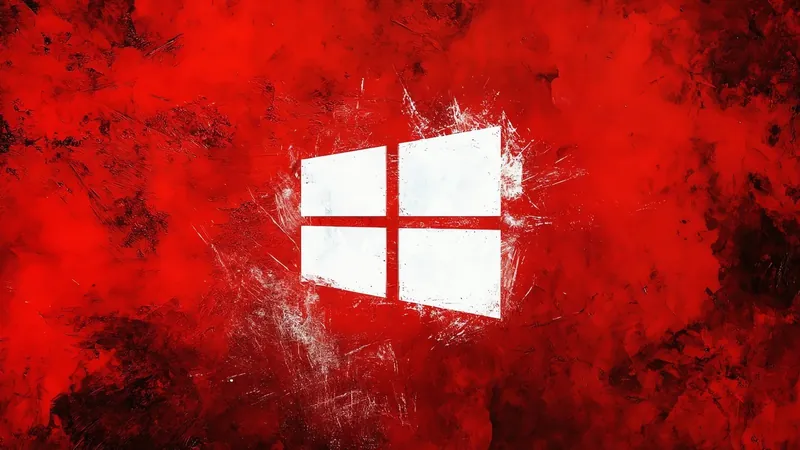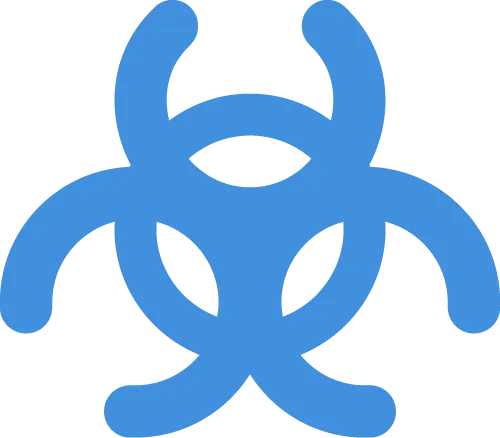
What You Need to Know About the Latest Windows Vulnerability That Could Expose Your Data
2024-09-15
Author: Wei
A recently patched vulnerability in Windows, known as the "MSHTML spoofing vulnerability" and tracked as CVE-2024-43461, has been flagged as previously exploited in a series of targeted attacks by the notorious Void Banshee APT hacking group. This zero-day flaw garnered attention when Microsoft initially disclosed it during Patch Tuesday in September 2024 but did not categorize it as previously exploited until now.
Peter Girnus, a Senior Threat Researcher at Trend Micro's Zero Day initiative, helped uncover this vulnerability. He confirmed to BleepingComputer that the Void Banshee group took advantage of it to deploy information-stealing malware that targets valuable data like passwords and cryptocurrency wallets.
Void Banshee has been identified as a well-organized threat group focusing on extracting sensitive information from various organizations across North America, Europe, and Southeast Asia. The group is known for its financial motivations and employs sophisticated methods to infiltrate systems.
The latest insights into the CVE-2024-43461 zero-day vulnerability reveal it was exploited alongside another flaw tracked as CVE-2024-38112, which was resolved in July. These vulnerabilities formed part of a multi-step attack chain aimed at infecting devices with the Atlantida info-stealer, which rapidly siphons sensitive information from victims.
Check Point Research first reported the exploitation of Windows zero-days in July. Haifei Li, a researcher from Check Point, elaborated on the techniques used: attackers manipulated Windows to launch malicious URLs in Internet Explorer rather than the more secure Microsoft Edge by utilizing specially crafted shortcut files. By leveraging this method, they could force victims to access a malicious HTA file designed to download and install the Atlantida info-stealer malware.
One especially clever tactic used by the hackers involved manipulating the file extensions of these malicious HTA files, so they appeared as harmless PDF documents. Girnus explained that they created a cunning illusion using 26 encoded braille whitespace characters (%E2%A0%80) embedded in the file names, rendering the true .hta extension hidden during Windows prompts. This deception makes unsuspecting victims more likely to open these harmful files, believing they are opening a legitimate PDF document.
After installing the security update for CVE-2024-43461, users can expect to see the actual .hta extension clearly displayed in Windows dialogues. However, the inclusion of whitespace still remains, which could still mislead users into thinking these files are PDFs.
This situation serves as a potent reminder of the vigilance needed in cybersecurity. Users are encouraged to install security updates promptly and maintain awareness of the types of files they open, especially when they are from unknown sources. The rise of sophisticated phishing tactics highlights the significance of security awareness in protecting against data breaches.
As technology evolves, so do the methods used by cybercriminals. Keeping software updated and practicing safe browsing habits is more critical than ever. Don't let the next threat catch you off guard! Stay informed and protect your data.



 Brasil (PT)
Brasil (PT)
 Canada (EN)
Canada (EN)
 Chile (ES)
Chile (ES)
 España (ES)
España (ES)
 France (FR)
France (FR)
 Hong Kong (EN)
Hong Kong (EN)
 Italia (IT)
Italia (IT)
 日本 (JA)
日本 (JA)
 Magyarország (HU)
Magyarország (HU)
 Norge (NO)
Norge (NO)
 Polska (PL)
Polska (PL)
 Schweiz (DE)
Schweiz (DE)
 Singapore (EN)
Singapore (EN)
 Sverige (SV)
Sverige (SV)
 Suomi (FI)
Suomi (FI)
 Türkiye (TR)
Türkiye (TR)